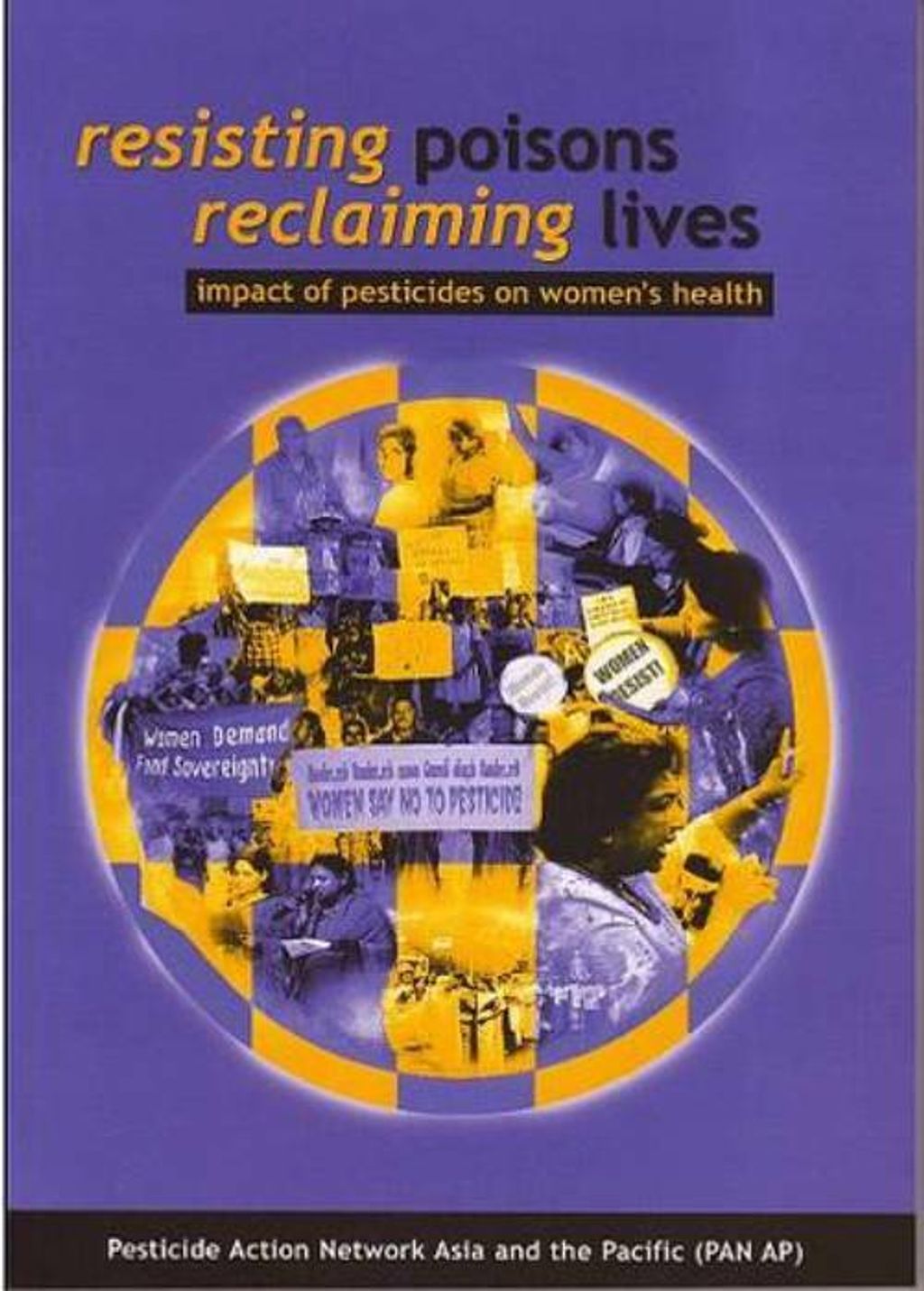
Resisting Poisons Reclaiming Lives: Impact of Pesticides on Women’s Health/ by Sarojeni V. Rengam, Radha H. Bhar, Jennifer Mourin & Revathi Ramachandran
- authors: Sarojeni V. Rengam, Radha H. Bhar, Jennifer Mourin & Revathi Ramachandran
- publisher: PAN AP
- published in: 2007
- language: English
The book comprises of four sections that discuss the issues ranging from the role of women farmers to their struggles against corporate companies. The first chapter of the book highlights the role of women farmers in ensuring food security, knowledge of ecological food production and the impact of Green Revolution (GR) which entrenched paternalism resulting in further disempowerment and impoverishment of women.
The analysis of women’s involvement in pesticide related activities is further deepened in chapter two whereby the author looks at the entire gender context of women’s work with pesticides. It is the inevitable fact that women are exposed to pesticides not merely in the field through spraying but also through a variety of chores associated with their multiples roles related to home-making.
Evidences of women’s struggles against the exposure to pesticides and their demands to health rights are elaborated in chapter three. In this chapter, two case studies involving two hazardous pesticides that are paraquat and endosulfan are highlighted. The first case study on paraquat implores the struggles of the parquat sprayers in the Malaysian palm oil sector. Despite the fact that majority of the sprayers consist of women who have suffered from the adverse effect of paraquat, their plight to attain a ban on the usage of the chemical is still pending due to the aggressive pressure imposed by the transnational companies to continue the usage of the chemical. The second case study involves the struggle of a community in India, whereby many of the women in the community bear the burden of caring for their children and fellow family members who suffer from multiple congenital diseases and mental retardation due to the usage of endosulfan for pest control measures. The final chapter of the book describes some of the organisations and networks that empower women working with pesticides and supporting them in the struggles.
